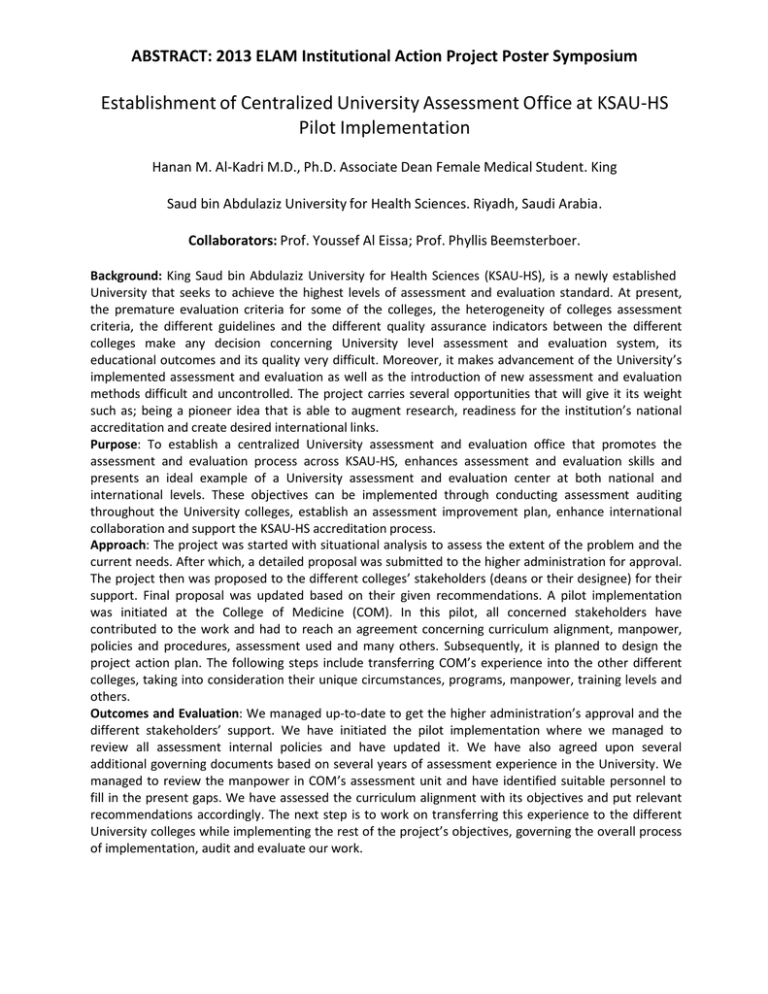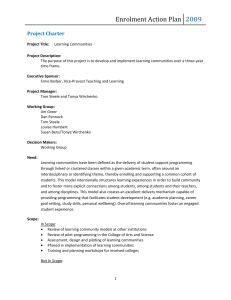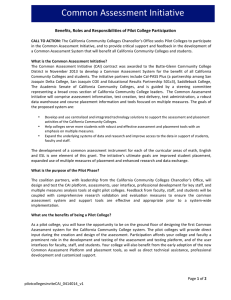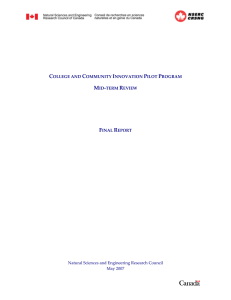Establishment of Centralized University Assessment Office at KSAU-HS Pilot Implementation
advertisement

ABSTRACT: 2013 ELAM Institutional Action Project Poster Symposium Establishment of Centralized University Assessment Office at KSAU-HS Pilot Implementation Hanan M. Al-Kadri M.D., Ph.D. Associate Dean Female Medical Student. King Saud bin Abdulaziz University for Health Sciences. Riyadh, Saudi Arabia. Collaborators: Prof. Youssef Al Eissa; Prof. Phyllis Beemsterboer. Background: King Saud bin Abdulaziz University for Health Sciences (KSAU-HS), is a newly established University that seeks to achieve the highest levels of assessment and evaluation standard. At present, the premature evaluation criteria for some of the colleges, the heterogeneity of colleges assessment criteria, the different guidelines and the different quality assurance indicators between the different colleges make any decision concerning University level assessment and evaluation system, its educational outcomes and its quality very difficult. Moreover, it makes advancement of the University’s implemented assessment and evaluation as well as the introduction of new assessment and evaluation methods difficult and uncontrolled. The project carries several opportunities that will give it its weight such as; being a pioneer idea that is able to augment research, readiness for the institution’s national accreditation and create desired international links. Purpose: To establish a centralized University assessment and evaluation office that promotes the assessment and evaluation process across KSAU-HS, enhances assessment and evaluation skills and presents an ideal example of a University assessment and evaluation center at both national and international levels. These objectives can be implemented through conducting assessment auditing throughout the University colleges, establish an assessment improvement plan, enhance international collaboration and support the KSAU-HS accreditation process. Approach: The project was started with situational analysis to assess the extent of the problem and the current needs. After which, a detailed proposal was submitted to the higher administration for approval. The project then was proposed to the different colleges’ stakeholders (deans or their designee) for their support. Final proposal was updated based on their given recommendations. A pilot implementation was initiated at the College of Medicine (COM). In this pilot, all concerned stakeholders have contributed to the work and had to reach an agreement concerning curriculum alignment, manpower, policies and procedures, assessment used and many others. Subsequently, it is planned to design the project action plan. The following steps include transferring COM’s experience into the other different colleges, taking into consideration their unique circumstances, programs, manpower, training levels and others. Outcomes and Evaluation: We managed up-to-date to get the higher administration’s approval and the different stakeholders’ support. We have initiated the pilot implementation where we managed to review all assessment internal policies and have updated it. We have also agreed upon several additional governing documents based on several years of assessment experience in the University. We managed to review the manpower in COM’s assessment unit and have identified suitable personnel to fill in the present gaps. We have assessed the curriculum alignment with its objectives and put relevant recommendations accordingly. The next step is to work on transferring this experience to the different University colleges while implementing the rest of the project’s objectives, governing the overall process of implementation, audit and evaluate our work.






